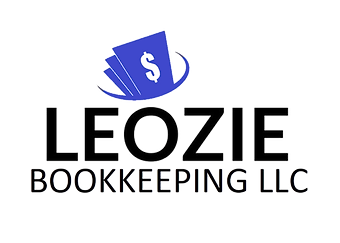Hello, fabulous clients & prospective referrals!
It’s been a minute since I last posted. I hope you’re all doing well and enjoying the beautiful Oregon summer. The next week will bring on some very hot weather which may make you want to consider staying inside for a bit. That will allow you time to look at your business expenses and what not to do when using those business credit cards to run to the store for a few bags of groceries or that cute summer outfit you were looking at.
Today, let’s dive into a topic that may seem a bit dry but is crucial for your business’s financial health: the perils of commingling personal and business funds. I promise to keep it light and fun!
What Not to Do: The Commingling Catastrophe
Picture this: You’ve had a busy day managing your business, and on your way home, you swing by your favorite coffee shop. You grab a latte, swipe your business card, and think, “What’s the harm? It’s just a coffee.” Well, my friend, that innocent coffee can lead you down a slippery slope of financial confusion!
Here’s why:
- Blurry Financial Picture: Mixing personal and business expenses makes it challenging to get a clear view of your business’s financial health. Imagine trying to make a loaf of sourdough bread and realizing that your starter wasn’t prepped before mixing into the flour. What do you get. A flat piece of dough that did not rise. Not the end of the world. You can make pizza but, in the meantime, you need to figure out what went wrong and make adjustments not to let it happen in the future.
- Tax Time Trouble: The IRS frowns upon commingling funds. It can lead to disallowed deductions, messy audits, and a lot of unnecessary stress. No one wants that kind of excitement!
- CPA Troubles: We have been working with CPAs for years now. It is not uncommon for your CPA to look at your financials, scratch their heads, and think “What the #$%@ is going on here”! There may be a discussion about not mixing personal and business funds and then, believe me, you may find yourself kicked to the curve if the behavior doesn’t end immediately. Finding a new CPA these days is a challenge.
- Legal Liabilities: If your business is an LLC or corporation, commingling can pierce the corporate veil. “Piercing” is generally available when a business owner unreasonably combining their personal fund with business funds, making you personally liable for business debts. Yikes!
What to Do: The Separate but Equal Approach
Now, let’s talk solutions! Keeping your funds separate is easier than you think, and it brings peace of mind. Here’s how to do it right:
- Get a Business Bank Account: This is step one. Open a separate bank account dedicated solely to your business transactions. Trust me, it’s a game-changer.
- Use a Business Credit Card: For those times when you need to use credit, ensure you have a business credit card. It helps keep track of expenses and builds your business credit score. If you don’t have a credit card, use the business ATM visa card.
- Pay Yourself a Salary: Rather than dipping into business funds for personal expenses, pay yourself a regular salary. This creates a clear boundary between your finances. That is unless you are a Sole Proprietor. If you are a Sole Proprietor, then talk to your CPA about how to figure out how much and when to take a Owner’s Draw from the company. Talking to a CPA can help make sure you don’t also cause yourself more tax implications.
- Track Everything: Hire a fabulous bookkeeper—I suggest this terrific firm called LEOZIE Bookkeeping LLC, to carefully track every expense and income. This keeps your records clean and organized.
The Bottom Line
Mixing personal and business finances isn’t just a bookkeeping topic; it can have serious consequences on your bottom line:
- Confusing Cash Flow: When funds are mixed, it’s hard to know what’s available for business growth. You might think you’re in the green when you’re actually in the red.
- Missed Opportunities: Clear financials are essential for securing loans or investors. Mixed finances can make your business look less credible and organized.
- Inaccurate Financial Reports: Without a clear separation, your financial statements could be inaccurate, leading to poor business decisions based on faulty data.
- Audits: Comingling your personal and business expenses can easily be confused with a legitimate business expense and therefore be categorized as a business expense for IRS deductions. If you are ever audited, this type of mistake can lead to fines and penalties.
The Bright Side
Keeping personal and business finances separate might seem tedious at first, but the benefits far outweigh the effort. Clear records lead to better decision-making, less stress at tax time, and a true picture of your business’s financial health. Plus, it keeps you on the right side of the IRS and legal regulations.
So, let’s raise a (properly expensed) coffee cup or that slice of sourdough pizza to keeping your finances organized and you and your business off the radar. As always, if you have any questions or need a helping hand, don’t hesitate to reach out. Happy bookkeeping!
Remember, a little organization goes a long way in the world of finance. You’ve got this!\
cil
